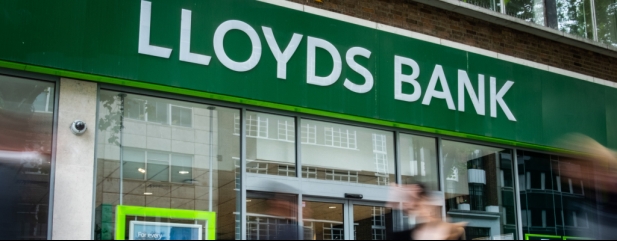Even on a down day for the markets prompted by war in Ukraine the 9% fall in Lloyds Banking (LLOY) shares on 24 February was notable as it reported full year results. Earnings were weaker than forecast due to higher-than-expected fraud costs and restructuring charges.
The market appeared unconvinced by a strategy to increase non-interest income in areas like wealth and investment management.
Berenberg analyst Peter Richardson says Lloyds has a ‘clear rationale’. He comments: ‘The bank has an enviable distribution network and has low penetration in these areas. Problematically, however, this is not the first time that Lloyds has attempted this strategy and past success has been limited.’
Richardson notes that for this reason Lloyds is unlikely to receive full credit for the targeted £700 million of revenue growth in this area by 2024 whereas the increased costs associated with this initiative are more ‘certain’.
The weak sentiment towards Lloyds is not helped by fears that Russia’s invasion of Ukraine might derail anticipated interest rate rises globally.
In 2021 the bank’s pre-tax profit rose to £6.9 billion versus a consensus forecast of £7.2 billion. Earnings per share of 7.5p fell short of a consensus estimate of 8.1p. Return on tangible equity at 13.8% was also shy of an expected 15.1%.
More positively, the group’s common tier one ratio (a key measure of a bank’s balance sheet strength) at 17.3% suggests surplus capital of £7.4 billion.
This is equivalent to 20% of the bank’s current market value and explains Lloyds’ ability to announce a significantly larger than expected share buyback of £2 billion. The market was expecting a more moderate buyback of £1.4 billion. The group’s capital position means it can support a 5% dividend yield.
As the biggest UK retail bank, Lloyds has a large customer base to whom it can provide investment advice and savings services. However, while the bank’s Scottish Widows business is well placed to support life insurance and pension needs, the group’s capabilities in wealth and investment management have been lacking.
Lloyds agreed a wealth management joint venture with Schroders (SDR) in 2018, though Berenberg’s Richardson notes ‘progress here has already disappointed’.
In July 2021 Lloyds announced the £390 million acquisition of Embark. The deal bolstered Lloyds’ position within wealth management and brought in 410,000 customers and £35 billion of assets under management.
The hope is Embark’s digital capability and expertise will help Lloyds to deliver a modernised, self-managed investment offering. Lloyds is aiming to reach a top-three position in the individual pensions and retirement drawdown market by 2025.
‹ Previous2022-03-03Next ›

 magazine
magazine








